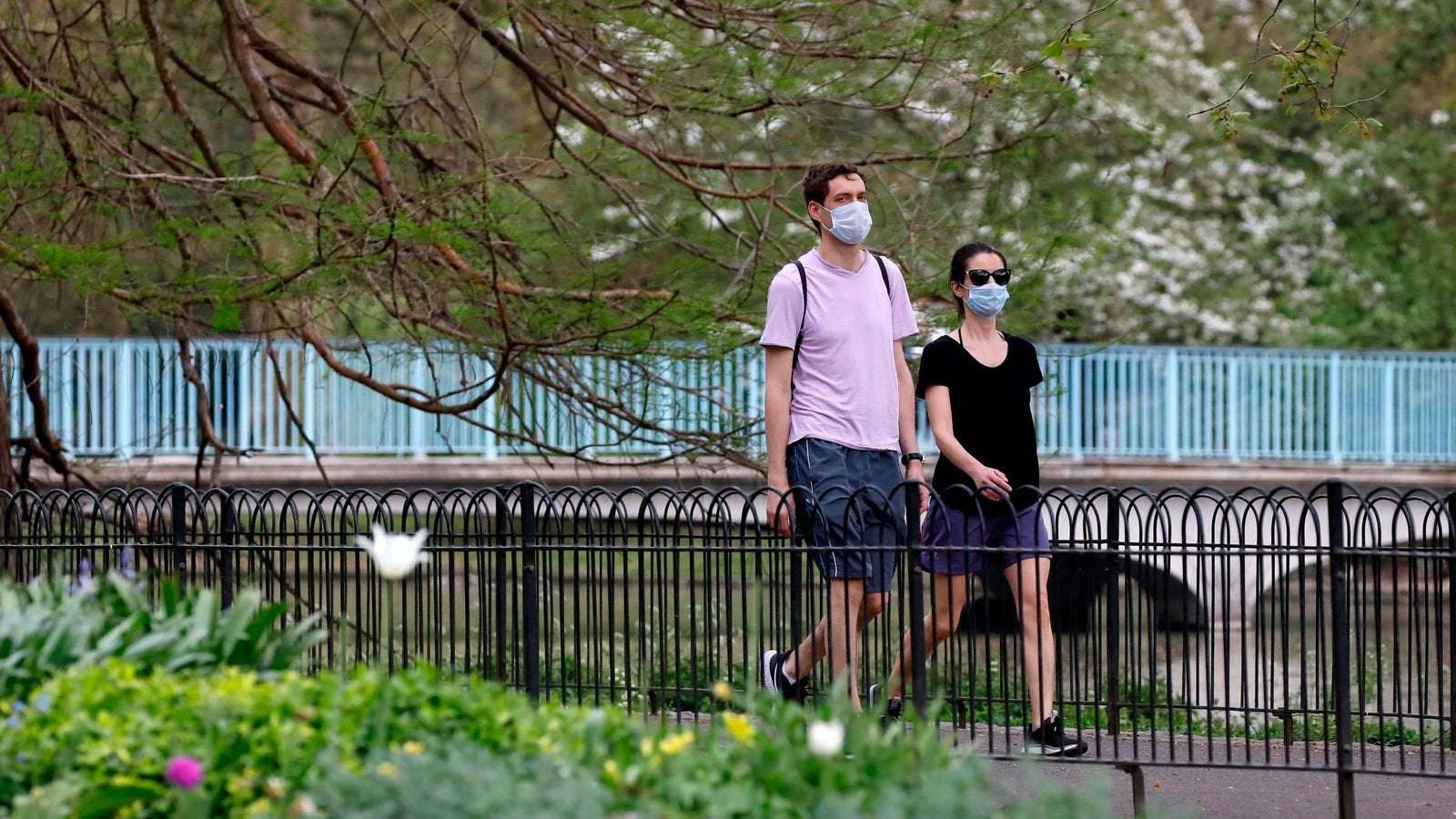Only 9% of Britons want life to return to "normal" after the coronavirus outbreak is over, a survey suggests.
People have noticed significant changes during the lockdown, including cleaner air, more wildlife and stronger communities.
More than half (54%) of 4,343 people who took part in the YouGov poll hope they will make some changes in their own lives and for the country as a whole to learn from the crisis.
:: Listen to the Daily podcast on Apple Podcasts, Google Podcasts, Spotify, Spreaker
And 42% of participants said they value food and other essentials more since the pandemic, with 38% cooking from scratch more.
The survey found that 61% of people are spending less money and 51% noticed cleaner air outdoors, while 27% think there is more wildlife.
Two-fifths said there is a stronger sense of community in their area since the outbreak began and 39% say they are catching up with friends and family more.
The survey was commissioned by the Royal Society of Arts, alongside The Food Foundation, as part of its work to draw up an action plan for more sustainable food and farming, land use and the rural economy.
Professor Tom MacMillan from the Royal Agricultural University, and research lead for the RSA's commission, said: "This data shows there is a real appetite for change, and for the nation to learn from this crisis.
"People are trying new things and noticing differences, at home, in their work and in communities."
Mr MacMillan said this was especially apparent when it comes to food, farming and the countryside.
He added: "Alongside the emergency response, it is important to keep track of these changes in what we're doing and our collective mood, to help shape the kind of country we want to be, including the way we want to feed ourselves, when we recover from this pandemic."
Matthew Taylor, chief executive of the RSA, said that while it was right the immediate emergency was the priority, "we must use this time to imagine a better future".
He said: "This poll shows that the British people are increasingly aware that the health of people and planet are inseparable and it's time for radical environmental, social, political and economic change."

axw3555 on April 17th, 2020 at 17:08 UTC »
I don't want to go back to how it was before, but I don't want to stick like this either.
Like, I miss seeing my mates and stuff, so I want that back, but my job is management accounts. In my job, there was literally nothing I couldn't do from home (and honestly, comparing my home computer/laptop to my work PC, probably 5x faster), but I had to go in and sit in a tiny office all day.
I also kind of hope that we move away from "you must work 40 hours a week" and more to "your tasks are X, your deadlines are Y, you must complete X by Y". Most of the time, my job could have been done in less than the 37.5 hours I was working, it was probably closer to 30 (some weeks closer to 20). I was hired to do a role. I do that role, but if I don't sit there for the extra 7.5 hours a week, I'm paid less. Start valuing people by what they do, rather than how long you see them for.
luckystar2591 on April 17th, 2020 at 16:37 UTC »
Before the lock down my road was screaming at each other about proper wheelie bin placement and car parking spaces.
Now they're organising a social distancing party (getting drunk with sitting in our doorways with decorations) for VE day.
I've no idea what the fuck is going on.
balloon99 on April 17th, 2020 at 16:37 UTC »
If every cloud has a silver lining, then one of the side effects of covid 19 has been to show us a glimpse of a world without commuting.
It's also shown us just how much work can actually be done at home.
I hope that, when this is over, it's not just a blind rush to the previous status quo. There are some unexpected benefits that could be integrated into our normal lives.